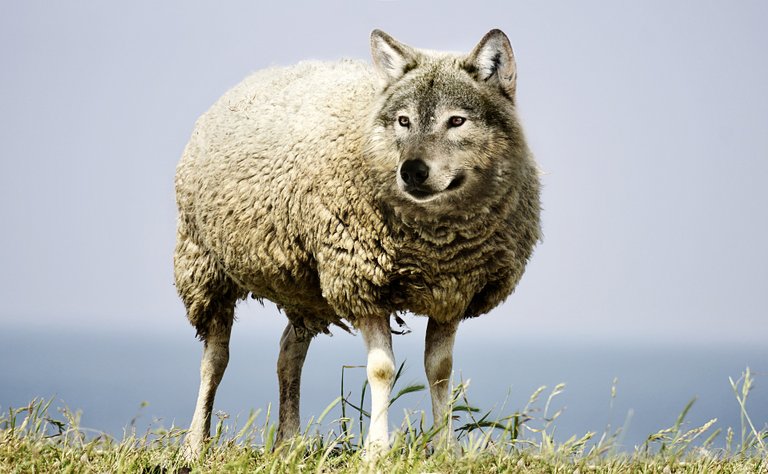
Today I want to speak about human herding.
Well as you may already know, there are some species that are living in groups because they are safer, for example, sheep.
However, there are animals that are much deadlier in a group than alone, wolves, for instance.
Humans also are more likely to live in a group than alone. Unfortunately, there are some people that take advantage of that and by using manipulation are able to control whole countries. Of course, I'm talking about politicians.
But how to be a wolf instead of a sheep?
How to create a smart group?
Let's start with some examples.
The benefit of being in a herd is information access. We can't deny that gathering information in a group is easy and sure you can learn a lot, but what if those pieces of information are false?
Then everyone in that group will have false information, but because there are so many people in their environment spreading that information, they will think It's true and will not check It.
You can easily see that rule in elections.
We all stumbled across some polls on tv, saying that some candidate has more votes than others.
It's manipulation. (in most cases).
If someone without knowledge would watch it, he would probably say something like that:
"well if there are so many people voting for him, then it's impossible for another candidate to win, so I'm going to vote for that person".
which is sad because in many cases those polls are fake and people creating them are using our need to be a part of something bigger.
It's our natural behaviour to follow a majority so you shouldn't be ashamed of it.
We can find another example of that manipulation in advertisements. Do you remember when you saw an ad for some medicine or some miraculous machine that can burn you fat in a minute?
Do you remember what that ad said? I'm 99% sure that it said something like: "95% of buyers are happy with the effect, satisfaction guaranteed" or at least something very similar.
As you can see this is the same rule, but used in another way.
There is one more thing. When someone comes up with an idea, the rest of a group will unconsciously make their decision based on that idea or will agree with that idea, even when it's not the best thing that could be said. So let's say that you are in a school, and you have to do a project about a specific subject, but you have to do it with a few people, now imagine that in your group will be one charismatic person, and he or she will come up with an idea, not the best idea, in the best case mediocre, still what do you think your group is more likely to choose?
So is there a way to make a group smarter, is there a way to create a pack of wolves instead of a pack of sheep?
Yes, there is.
Derren Brown in one of his shows invited 20 bank workers to guess the number of coloured balls in a big glass jar, but there was one thing, they were doing it separately, without consulting with each other. You know what happened?
One of them guessed the exact amount, and the arithmetic average of the whole group was an accurate quantity of coloured balls.
Derren is using the most important rule to active crowds wisdom, which is independence.
If you want to be a wolf among sheep, or you want to create a pack of wolves, then just isolate yourself, and individuals before a discussion, or a conference about a very important project, let yourself and others think independently, thanks to that you will have the best ideas, the best projects, etc.
Sure there is one problem with that it's hard to isolate a crowd, like let's say a 1000 people, but in that crowd, you can be a wolf, you can separate yourself, and see if they are fighting for their own opinions or an opinion of someone smarter. You can be immune to false information, and check everything. You can always convince someone to do the same, so one or two convinced persons is still better than no one.
It's already a long post, so if you want me to continue it in the future, let me know